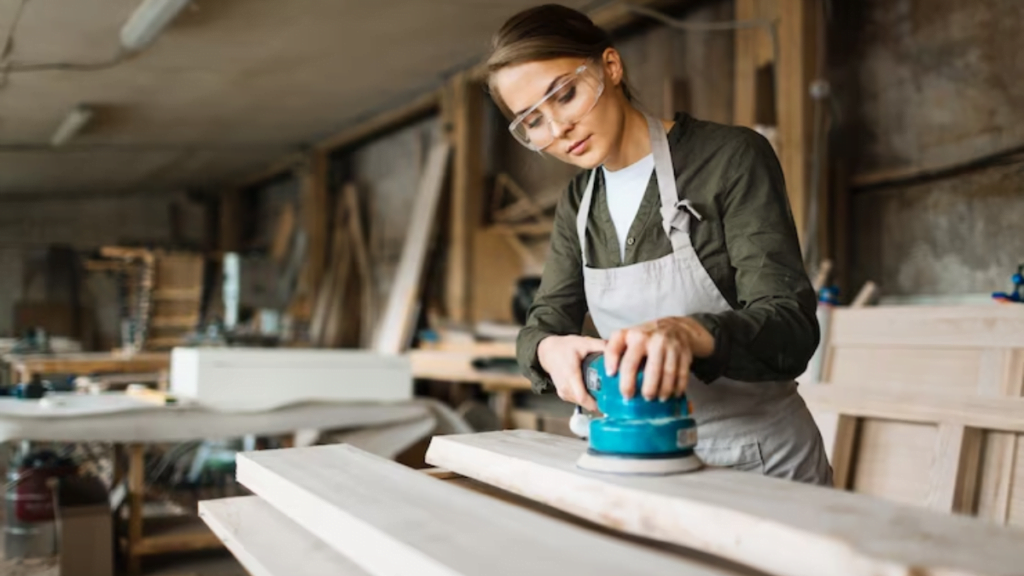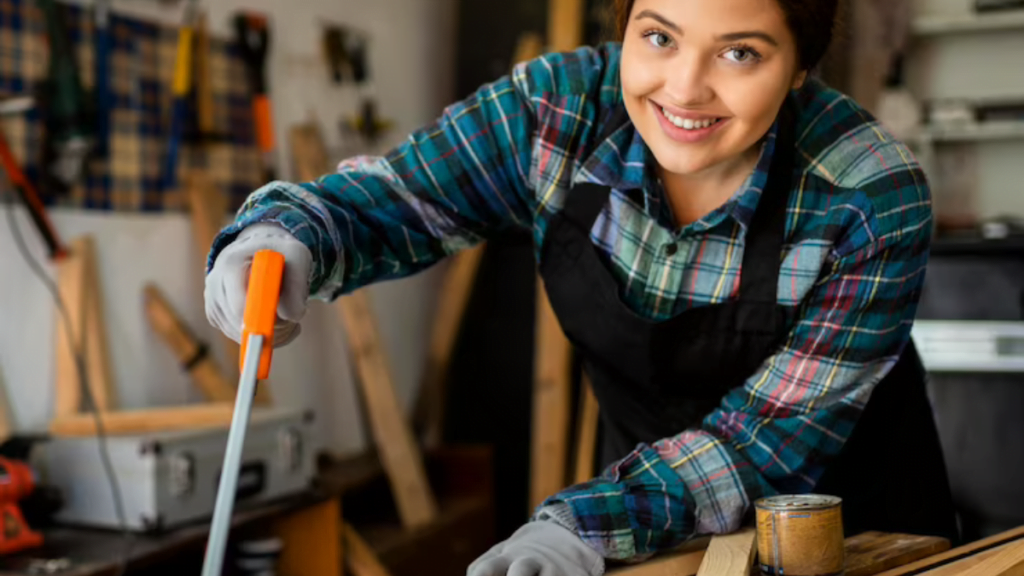Commercial Plywood: When it comes to construction and furniture making, one of the most essential materials is plywood. Plywood is a type of engineered wood made from thin layers of wood veneers glued together with the grains of adjacent layers perpendicular to each other. Commercial plywood, in particular, is widely used in various applications, from flooring to roofing and furniture making. In this article, we’ll explore the reasons behind the popularity of commercial plywood.
Table of Contents
Commercial Plywood: Defination
Commercial plywood is a type of plywood that is made from high-quality wood veneers and is designed to be strong, durable, and affordable. It is made by gluing together thin layers of wood veneers with the grains of adjacent layers perpendicular to each other. The thickness of the plywood depends on the number of veneer layers used, ranging from 3mm to 25mm.

Commercial Plywood: Advantages
Durability
One of the main advantages of commercial plywood is its durability. It is a strong and sturdy material that can withstand wear and tear, making it ideal for use in construction and furniture making. It can resist moisture, termites, and other pests, making it long-lasting and low maintenance.
Versatility
Commercial plywood is a versatile material that can be used in a wide range of applications, from furniture making to construction. It can be easily cut, drilled, and shaped to fit any design or application. It is also available in various thicknesses and grades, making it suitable for a range of projects.
Affordability
Another advantage of commercial plywood is its affordability. Compared to other materials like solid wood, it is more cost-effective while still providing the same level of durability and strength. This makes it a popular choice for construction and furniture making, especially in large-scale projects.
Types of Commercial Plywood
There are several types of commercial plywood, each designed for specific applications. Here are some of the most common types:
Moisture-resistant plywood
Moisture-resistant plywood is designed to resist moisture, making it suitable for use in areas that are exposed to high humidity or water. It is often used in bathrooms, kitchens, and other areas that are prone to moisture.
Boiling water-resistant plywood
Boiling water-resistant plywood is designed to withstand high temperatures and humidity, making it ideal for use in areas that are exposed to water and heat, such as kitchen countertops and cabinets.
Fire-resistant plywood
Fire-resistant plywood is designed to withstand high temperatures and prevent the spread of fire. It is often used in areas that require fire-resistant materials, such as public buildings, hospitals, and schools.
Applications of Commercial Plywood
Commercial plywood has a wide range of applications, including:
Furniture making
Commercial plywood is widely used in furniture making, from cabinets and shelves to bed frames and chairs. Its versatility and affordability make it a popular choice for both commercial and residential projects.
Flooring
Commercial plywood is also used for flooring, especially in areas that require durable and long-lasting materials like gyms, dance floors, and sports arenas. It can be finished with a variety of materials, including laminates, veneers, and coatings, making it suitable for any design or style.
Roofing
Commercial plywood is also used in roofing, providing a strong and stable base for shingles or other roofing materials. It is resistant to weather and moisture, making it ideal for use in areas that are prone to heavy rains or snow.
Interior decoration
Commercial plywood is also used in interior decoration, providing a cost-effective and versatile material for wall panels, ceilings, and other decorative features. It can be painted, stained, or finished with a variety of materials, making it suitable for any design or style.
Buying guide for commercial plywood
When buying commercial-plywood, there are several factors to consider to ensure that you get the right product for your project. Here are some things to keep in mind:
Grade
Commercial-plywood is graded based on its quality, with A being the highest grade and D being the lowest. A-grade plywood is the most expensive but has the fewest defects, while D-grade plywood is the least expensive but has the most defects.
Thickness
The thickness of commercial-plywood depends on the number of veneer layers used, ranging from 3mm to 25mm. Thicker plywood is stronger and more durable but also more expensive.
Moisture content
The moisture content of commercial-plywood affects its strength and durability. Plywood with a higher moisture content is more prone to warping and splitting, while plywood with a lower moisture content is stronger and more stable.
Type of glue
The type of glue used to bond the veneer layers together also affects the strength and durability of commercial-plywood. There are two types of glue used: interior glue and exterior glue. Exterior glue is more resistant to moisture and weather and is recommended for outdoor use.
Brand
Choosing a reputable brand of commercial-plywood is important to ensure that you get a high-quality product that meets your needs. Some of the most well-known brands include Century Ply, Greenply, and Kitply.

Maintenance and care of commercial plywood
To ensure the longevity and durability of your commercial-plywood, it is important to take proper care of it. Here are some tips for maintenance and care:
- Avoid exposing plywood to direct sunlight or extreme temperatures, which can cause warping and splitting.
- Keep plywood dry and away from moisture, which can cause rot and decay.
- Avoid using harsh chemicals or abrasives on plywood, which can damage the surface.
- Clean plywood regularly with a soft, damp cloth to remove dirt and dust.
Conclusion
commercial plywood has become popular due to its affordability, versatility, and durability. It is used in a variety of applications such as furniture making, construction, roofing, and interior decoration. By considering factors such as the grade, thickness, moisture content, type of glue, and brand when buying commercial-plywood, you can ensure that you get the right product for your needs. With proper care and maintenance, commercial-plywood can last for many years and continue to provide a strong and stable foundation for your projects.
You can also read
Why Should a Singer Learn to Play the Piano 2023
How to Skip All the Lines at Disney World 2023
Short and Sweet: Why Short Films are Taking Over the Film Industry
Frequently asked questions
Is commercial-plywood waterproof?
It depends on the type of commercial-plywood. Moisture-resistant and boiling water-resistant plywood are designed to resist water, while fire-resistant plywood is designed to withstand high temperatures.
What is the difference between commercial-plywood and marine plywood?
Marine plywood is designed specifically for use in water applications, while commercial-plywood is more versatile and can be used in a wide range of applications.
How long does commercial-plywood last?
The lifespan of commercial-plywood depends on several factors, including the quality of the plywood, the conditions it is exposed to, and how well it is maintained. With proper care, commercial-plywood can last for decades.
Can commercial-plywood be painted or stained?
Yes, commercial-plywood can be painted, stained, or finished with a variety of materials to achieve the desired look.
Is commercial-plywood safe for indoor use?
Yes, commercial-plywood is safe for indoor use as long as it is not exposed to excessive moisture or harsh chemicals.
Don’t forget to support us by following us on Google News or Returning to the home page TopicsTalk
Join Telegram and WhatsApp for More updates
Follow us on social media
